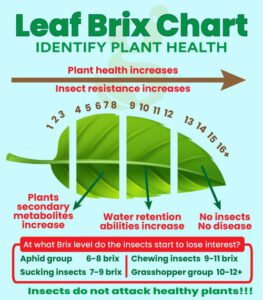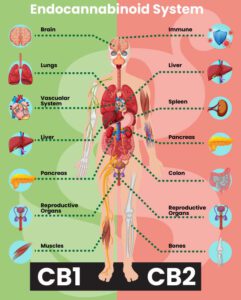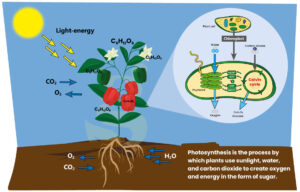
Brix in relation to crop health and quality
Brix in relatie tot gezondheid en kwaliteit van gewassen. De zoete wetenschap van Brix. Brix in relatie tot gezondheid en kwaliteit van gewassen. Brix-waarde verwijst
More yield from better quality
All in just 5 products
25+ years of fertilizer experience
Better and cheaper
Easy to use
Fertilisers play a crucial role in greenhouse construction. By adding nutrients to the substrate, we try to promote optimal plant growth. However, the world of fertilisers can be complex and diverse, with different types meeting different needs. This guide aims to shed light on the main differences between the main types of fertilisers.
Understanding the world of fertilisers is crucial to making informed decisions about which products to use. Whether you choose the fast action of inorganic fertilisers, the quality benefits of organic options or choosing a mix of both, organic with mineral. Each type serves a unique purpose in supporting plant health and maximizing yields. By considering factors such as nutrient composition, release rates and application methods, you can choose the right fertilizer for your specific needs and contribute to the overall success of your grow.

Inorganic fertilisers, also known as synthetic fertilisers, are manufactured through industrial processes. They usually contain concentrated forms of essential nutrients such as nitrogen, phosphorus and potassium. These nutrients are crucial for plant growth and inorganic fertilisers provide a quick and immediate source. If fertilisers are applied in a well-balanced way, they give you a result with the highest possible yield. After all, you are assured that your plant gets the right amount, at the right time.
Organic fertilisers are derived from natural sources, including plant and animal material. Well-known examples are compost, manure, blood meal and bone meal. These fertilisers release nutrients slowly as they decompose, promoting sustainable and long-term soil health. Organic fertilisers also contribute to better soil structure and water retention. If you want to maximise yields in a short time, this is not the most obvious option. Are you aiming for a higher quality end product then this is probably the better option for you.
Organo-mineral fertilisers also known as hybrid fertilisers, combine the benefits of both organic and inorganic fertilisers and offer a balanced and versatile solution for plant nutrition. These fertilisers integrate organic material, derived from natural sources such as plants, trees and algae, with mineral components that contain essential nutrients such as nitrogen, phosphorus and potassium. They offer a balanced mix of organic and inorganic nutrients, providing plants with a comprehensive range of essential elements for optimal growth. The organic components contribute to improved soil structure, water retention and microbial activity, promoting soil health.
I componenti minerali migliorano la disponibilità immediata dei nutrienti, consentendo alle piante di assorbirli in modo rapido ed efficiente. I nutrienti ottenuti dagli additivi organici forniscono alla pianta nutrienti unici per un periodo di tempo più lungo, che non possono essere ottenuti dai nutrienti minerali. Di solito prevede l'aggiunta di estratti naturali ricchi di vitamine, aminoacidi, carboidrati, ormoni vegetali, proteine, enzimi, ecc....
We definitely make the choice of Organo-Mineral fertilisers. And we are not the only ones. Because the choice of feeding with Organo-mineral fertilisers is being made more and more often. Especially in indoor cultivation. Both on a small scale and for large producers growing export products in large greenhouses. Because there is the certainty that the plant always receives the right nutrients, at the right time and in the right quantity. After all, this is guaranteed by the mineral additives. And at the same time, the quality in taste, smell and shelf life is greatly improved by the organic additives. What more could you want!
And that is why our preference is to use Organo-mineral fertilisers. We at Gen1:11 recommend Gen1:11 😊


Brix in relatie tot gezondheid en kwaliteit van gewassen. De zoete wetenschap van Brix. Brix in relatie tot gezondheid en kwaliteit van gewassen. Brix-waarde verwijst

Het endocannabinoïde systeem begrijpen Een korte handleiding voor CB1- en CB2-receptoren Het endocannabinoïde systeem (ECS) speelt een fundamentele rol bij het reguleren van verschillende fysiologische

Photosynthesis Photosynthesis is the process by which green plants, algae and some bacteria convert light energy into energy in the form of glucose. This process mainly takes place

7 handy tips to prepare for the new garden season Gardening tasks when the spring jitters strike: Spring is a time of renewal and

The development of hydroponic fertilisers through the ages The history of hydroponics is a story of innovation and perseverance, rooted in the quest of the

Creating a successful indoor grow involves more than just light and water. Here are 7 tips to boost your indoor garden.
Brix in relatie tot gezondheid en kwaliteit van gewassen. De zoete wetenschap van Brix. Brix in relatie tot gezondheid en kwaliteit van gewassen. Brix-waarde verwijst
Het endocannabinoïde systeem begrijpen Een korte handleiding voor CB1- en CB2-receptoren Het endocannabinoïde systeem (ECS) speelt een fundamentele rol bij het reguleren van verschillende fysiologische
Photosynthesis Photosynthesis is the process by which green plants, algae and some bacteria convert light energy into energy in the form of glucose. This process mainly takes place
7 handy tips to prepare for the new garden season Gardening tasks when the spring jitters strike: Spring is a time of renewal and
The development of hydroponic fertilisers through the ages The history of hydroponics is a story of innovation and perseverance, rooted in the quest of the
Creating a successful indoor grow involves more than just light and water. Here are 7 tips to boost your indoor garden.
Home » Fertilisers. What are they, which ones are there and which are the best?

Because growing your own is a craft. It takes time, energy, focus, attention, maybe even love. At your own pace, in your own environment. You are the creator.